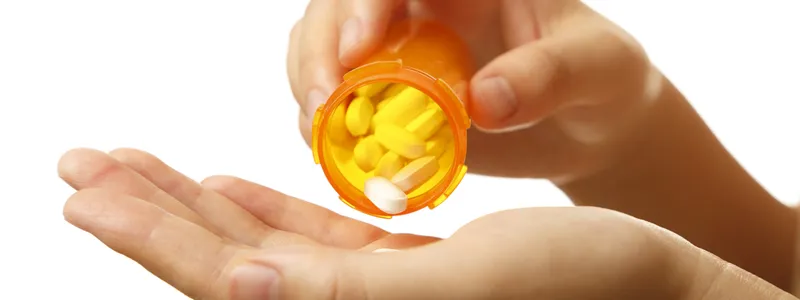
Photo by Gang Liu, Shutterstock.
Stanford Medicine Scope - August 16th, 2017 - by Tracie White
When I woke up from minor knee surgery a couple of years ago, the nurse asked me if I wanted morphine. I didn't know there were several non-opioid options for pain relief like acupuncture or something called electrotherapy. And what about cryotherapy? Could any of these be used to at least reduce the amount of morphine needed to control the pain?
In a new study published in JAMA Surgery, researchers examined the most commonly used non-pharmaceutical pain management therapies following knee replacement surgery to see if they did indeed work to reduced pain or opioid use while the patient was in the hospital. They found that acupuncture and electrotherapy could reduce and delay opioid use.
“Opioid addiction is a national crisis and surgery is now identified as a possible avenue for addiction,” said Tina Hernandez-Boussard, PhD, associate professor of medicine, biomedical data science and surgery at Stanford and senior author of the study.
It is important to recognize effective alternatives to standard pharmacological therapy, which remains the first option for treatment, she said.
By conducting a meta-analysis of the literature, she and her colleagues identified 39 randomized clinical trials which included 2,391 patients. They then identified five non-drug pain therapies most commonly used after total knee replacement surgery to reduce pain.
Those therapies included acupuncture, the Chinese practice of inserting needles at specific points in the skin, and cryotherapy, the use of extreme cold such as applying ice packs to the surgical site immediately following surgery. The other three therapies commonly used were preoperative exercise; electrotherapy, using electricity to minimize the perception of pain; and continuous passive motion (CPM), which uses a machine to provide regular movement to the knee immediately after surgery.
Study results showed moderate evidence that acupuncture and electrotherapy improved postoperative pain management and reduced opioid consumption. There was also weak evidence that cryotherapy reduced opioid consumption, but no evidence that it improves perceived pain. The findings suggested that CPM and preoperative exercise do not help alleviate pain or reduce opioid consumption.
Hernandez-Boussard stressed that the study examined only one type of surgery and only during that acute phase of pain immediately following surgery.
She urged patients to educate themselves about some of these therapies prior to surgery and to talk to their surgeon about the therapies' possible benefits in advance, which could be beneficial to recovery in the long term — which I will do if I ever have to return to the surgery table.
“The informed patient really has a lot of options,” Hernandez-Boussard said.

